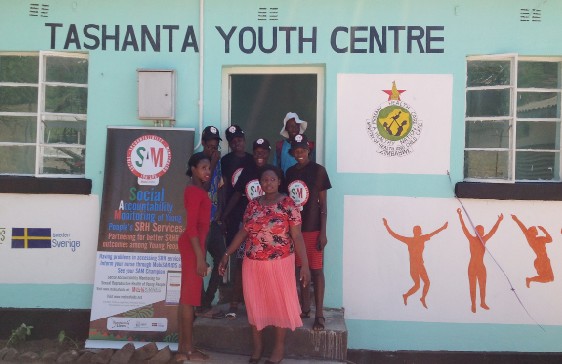

By style Reporter
The Southern African HIV and Aids Information Dissemination Service (SAfAIDS) has embarked on a project aimed at empowering adolescents and youths to engage in social accountability and monitoring of sexual reproductive health services through an innovative mobile application.
SAfAIDS is targeting disadvantaged adolescents and youths in rural and marginalised communities in Zimbabwe and recently the organisation reached out to the Hwange community.
The regional organisation, in partnership with the Swedish International Development Cooperation Agency (Sida) and Buwalo Matalikilo Trust [BMT], launched a youth-friendly corner at Lukosi Hospital in Hwange where they are piloting a mobile social accountability monitoring [MobiSAfAIDS] platform for sexual reproductive health services in rural Hwange.
The pilot project is also being done in Lesotho, Malawi, eSwatini, South Africa and Zambia.
The MobiSAfAIDS application is available for download on Google Play Store and there is also a desktop version. Users have to register in order to access the application, once one registers they can interact with a health facility administrator who has been trained to deal with issues being raised via the mobile application. This is being supported under the regional transforming lives programme.
SAfAIDS social accountability specialist Percy Ngwerume said their interest was around prevention of early unplanned pregnancy among young women, sexual and gender-based violence and also tackling issues of unsafe abortion.
“We might not have statistics on unsafe abortion, but it’s something that is a reality in our communities. It’s happening, but we are not talking much about it so we want to say let’s have this conversation so that we can prevent unsafe abortion and unplanned pregnancies,” said Ngwerume.
- Chamisa under fire over US$120K donation
- Mavhunga puts DeMbare into Chibuku quarterfinals
- Pension funds bet on Cabora Bassa oilfields
- Councils defy govt fire tender directive
Keep Reading
He said research carried out in Hwange revealed that only 7% of young people have had an opportunity to engage or interact with service providers.
BMT executive director Anna Mandizha Ncube said cases of unsafe abortion and school dropouts due to teenage pregnancies were a cause for concern.
“We are targeting the ages between 10 to 24 years because this is when a lot of abortions are taking place and this is when early sexual debuts are happening,” Mandizha Ncube said.
“Our mobile application (MobiSAfAIDS) will allow young boys and girls to complain or compliment in a private way as compared to suggestion boxes.”
Hwange district medical officer Wisdom Kurauone welcomed the initiative.
“The community does not have access to a lot of things that urban young people are exposed to. We welcome the initiative and we hope to have more youth-friendly facilities in Hwange district,” said Kurauone.
BMT, supported by SAfAIDS trained 20 young boys and girls, known as social accountability and monitoring champions, in the district.











